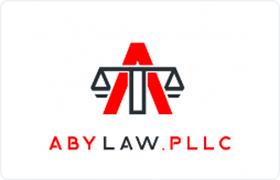 Camden Criminal Lawyers, Mississippi
Camden Criminal Lawyers, Mississippi
Sponsored Law Firm
-
 x
x

Click For More Info:
-
Abby Law, PLLC
403 B Towne Center Blvd Suite 102 Ridgeland, MS 39157» view mapCriminal Defense Law Get the Legal Support You Need
If you need an experienced litigation attorney, look no further than Aby Law, PLLC. We are a trusted general practice law firm in Ridgeland, MS.
800-953-2840
Sponsored Lawyers
1-3 of 3 matches
Divorce & Family Law, Criminal, Accident & Injury
Offering several years of legal experience to our clients at Murphy Law Firm, PLLC, founding attorney James H. Murphy devotes his practice exclusively to the representation of seriously injured individuals in the Jackson Metro area and throughout South Mississippi. Prior to establishing his workers' compensation and personal injury law firm in Flowood and Carthage, James H. Murphy worked as a safety engineer for an offshore drilling company. He has also represented large insurance companies in personal injury cases. Using these past experiences, our knowledgeable lawyer helps his clients understand and effectively overcome those legal challenges they face. Attorney James H. Murphy earned his Juris Doctorate from the Mississippi College School of Law. He is a member of the Mississippi State Bar, Workers' Compensation Section and Mississippi Association for Justice.
(more)


 Heather Aby Ridgeland, MS
Heather Aby Ridgeland, MS Practice AreasExpertise
Practice AreasExpertise

